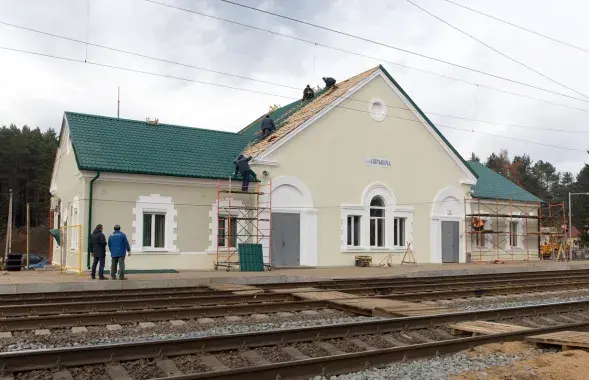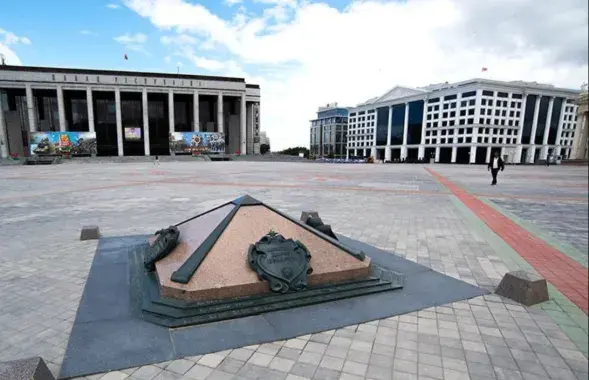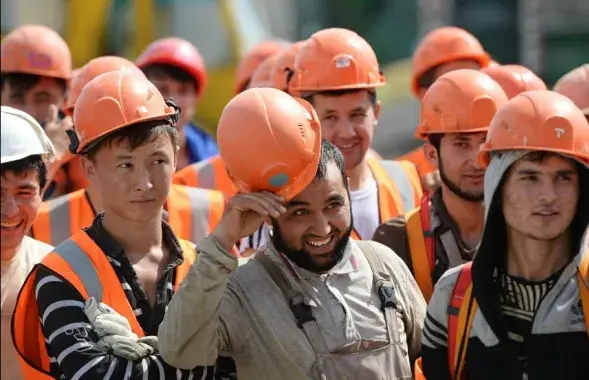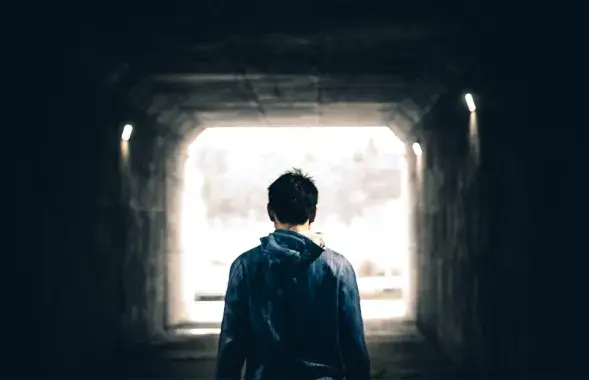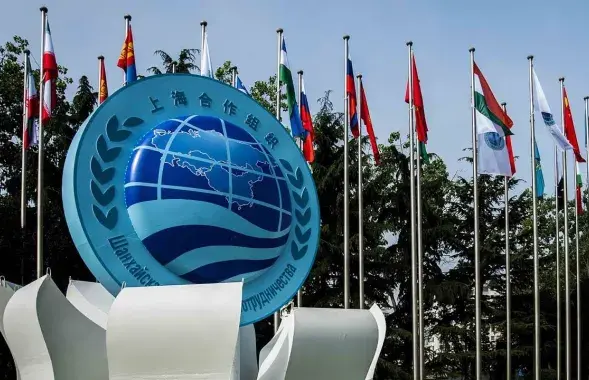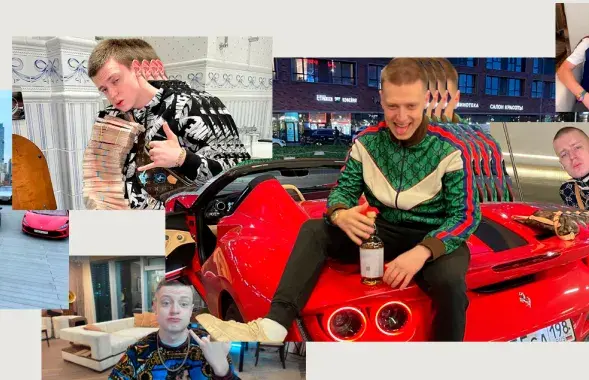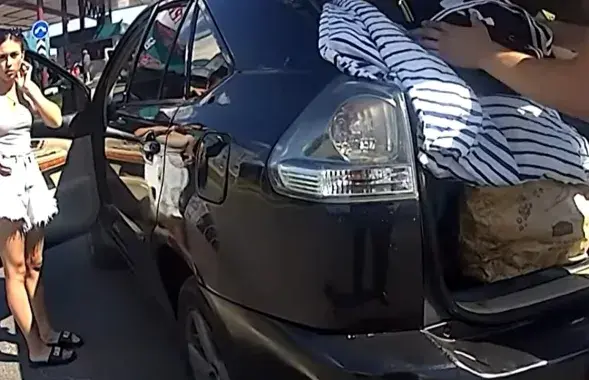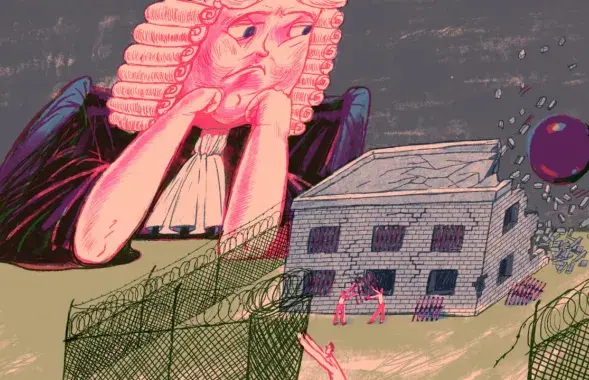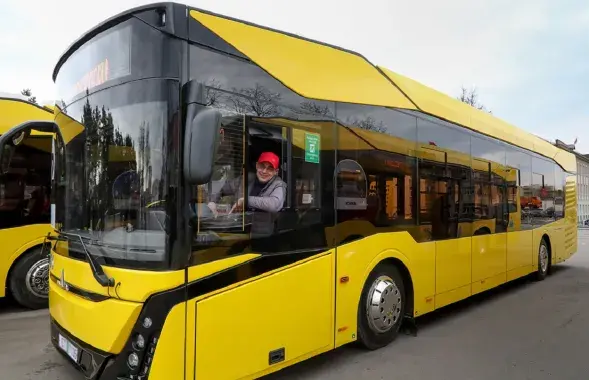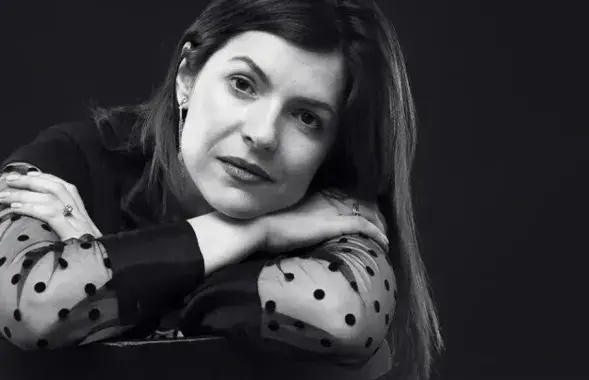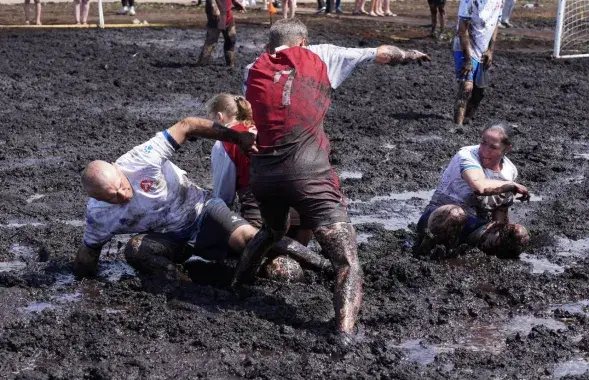Can you imagine a world without prison? We tried, and this is what we got
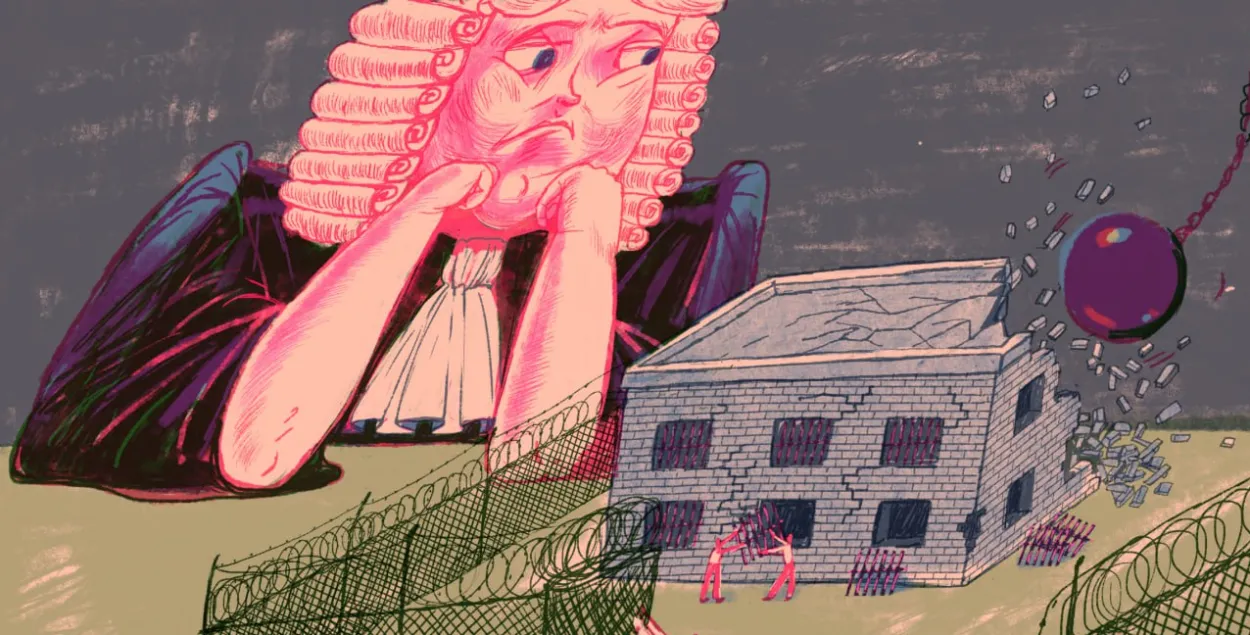
"Cancel" prison? / Euroradio
Imagine a world without prisons.
One more time.
Now move on to the next paragraph.
You're not the only one who's failed. The writers, philosophers, and architects we've talked to throughout the month have also failed. Each of them describes in a different way the changes that need to be made in prisons - but none of them can imagine a world without prisons.
- There will always be groups of people in society who don't accept the rules by which that society lives and try to destroy it," says methodologist Andrei Yahorau.
In 2020, the prison was seen by people who should never have seen it. Now our friends are in Belarusian prisons, and we want to change the penitentiary system for their sake. But will we be ready to reform prisons when our enemies are in them?
Lacking empathy? Selfishness may suffice
On the bunk was carved: "IK-1 is a sh*thole." The political prisoner Aliaksandr Kabanau saw this inscription during his transit through Stolin. And it was the only source of information about the Navapolatsk colony.
There was also indirect information: no one from the pre-trial detention cell wanted to go to the "first one". Sometimes it seemed to Kabanau that even the administration of other colonies did not know what was going on in Navapolatsk. When he was transferred to Mahiliou prison, the guards asked him: "Is it true that IK-1 is a sh*thole? And when Kabanau asked the same question to other prisoners, no one answered directly. They all said, "You'll find out when you get there.
Kabanau saw his first prison in 2020. Architect Antonio Sorrentino, who is working on redesigning Italian prisons, saw his first one in 2022.
"When I saw the video shot inside the prison, when I saw the conditions in which people live, I was shocked. I could not imagine that in a so-called developed country, in a country where the death penalty is banned, the conditions could be ... like this.
There is a gulf between the prisons in Italy and Belarus, but Kabanau and Sorrentino use the same words to describe the penitentiary system in their countries. The purpose of prison in Belarus and Italy is punishment and retribution.
The inscription on the bunks did not deceive, IK-1 is a sh*thole... Mahiliou Prison No. 4, where Kabanau was transferred, is the same, but unlike a colony, the prison has no problems with the library.
"Every day, when the food hatch opens, you can say: Iosifavich, please bring books. Iosifavich will answer: Kabanau, I'm fed up with you, why are you reading so fast?" And he'll bring the books.
In the prison library, we found literature about how prison systems in other countries were trying to change from punitive to corrective institutions. The books said that a prison should give a person the opportunity to get an education and a job. Not for the sake of the prisoner, but for the sake of the society to which he would return.
"These books make a clear argument: if a person can provide for himself and his family after leaving prison, the number of recidivism cases will go down," Kabanau says. "In Norway, where modern production has been created in prisons, where a person's personality is not destroyed, only 14-15% of ex-prisoners re-offend. By comparison, the recidivism rate in the U.S. is about 70%. But many people think that the criminal should suffer. Since they committed a crime, why should we feed and water and support them? So you have to start working with the community. And explain that this is the wrong way to treat a person.
The Scandinavians have already built humane prisons, even put "hygge" in them. There are no bars on the windows, and there are no guards. It's a settlement, more like a commune than a colony. And in this settlement, people work together to stop committing crimes. If society's goal is to "reform" the criminal, then this prison does the job. But if society wants retribution?
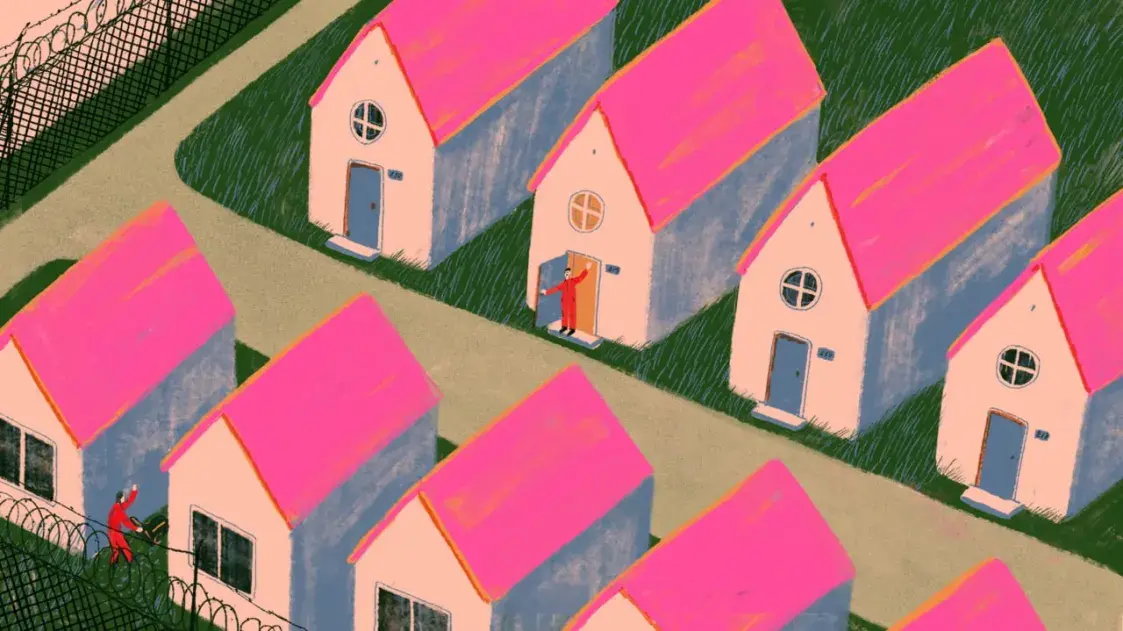
Russian writer Nikolai V. Kononov now lives in Berlin. And he says that many citizens are not always happy with the comfortable conditions in their prisons.
"Often prisons are so comfortable that a person can decide: well, I'll rob them, I'll have a great couple of years. Why not? You sit alone, nobody touches you. Then you play chess for half an hour in the recreation room. And they feed you well, and they treat you at public expense, which is important in Germany. Many citizens are not always happy about this".
Of course we want to get political prisoners out of jail. But are we so willing to spend on improving conditions for common criminals? And will we want to spend on prisons when (if) people who have committed crimes against humanity end up in them?
You may be surprised, but the purposes of criminal accountability are spelled out in Article 44 of the Criminal Code - and retribution is not one of them:
The purpose of criminal responsibility is to correct the person who has committed a crime and to prevent the commission of new crimes, both by the convicted person and by other persons.
Criminal responsibility is intended to contribute to the restoration of social justice. The conviction of a person who has committed a crime is the basis for restitution of property damage, income obtained by criminal means and material compensation for moral damage.
Apparently, the administration of the colony and the prison, where Kabanau was imprisoned, did not reach the prison library. In the Belarusian penal colony IK-1 it is possible to learn only bricklayer or welder. The prisoners don't really believe that such an education will help them in their new life, but they have to beg for the opportunity to get such an education. The administration decides who is allowed to study and who is not. Because if you study, it means you have to be removed from the industrial zone. By the administration's standards, that's a luxury.
"The administration is mostly made up of inadequate people who speak criminal slang and behave like criminals," Kabanau recalls.
And since prisoners aren't given skills that can be used on the outside, even before they're released, they're thinking about how to use the skills they already have.
"Many are already forming future criminal gangs before they are released. I've seen guys who were involved in 'planting' drugs discuss why they got caught and how to make sure they don't get caught again. They realize they can't make that kind of money anywhere else. And they are not offered any alternatives in the penal colony, because the penal colony in Belarus does not correct," Kabanau says. "The idea is that the only thing that should stop a person from committing another crime is the fear of returning to the colony.
If society lacks the empathy to change the living conditions of people in prisons, it should look for selfishness in itself, suggests Italian architect Antonio Sorrentino.
"If the purpose of prison is to punish crime, then that prison has no value for society. We need to stop thinking of prison as an institution of punishment and retribution and think of it as a place where people are rehabilitated. We have to realize that prisoners are not going to stay in prison forever. One day they will get out, and often when these people return to society from modern prisons, they are more aggressive than they were before they went to prison.
So think selfishly: by changing prisons, we change our own lives. First, because not only "bad people" go to prison - good people go there too, as the Belarusian experience shows. Second, because prison in its current form only aggravates mental problems.
If prisoners have the opportunity to rebuild themselves in prison, including changing the economic side of their lives, society will benefit. After all, many committed their first crime not because they wanted to break the law, but because economic conditions forced them to do so. I am not justifying criminals - I am simply suggesting that we think about it. Think about how we can change the concept of prison.
We asked Antonio Sorrentino to describe the prison he wanted to build. And he began by choosing a location. Not only in Belarus, but in many European countries, prisons are located outside the city. Sorrentino proposes to build "as in the Roman Empire": the prison should be located in the center. Because it is with "invisibility" that isolation begins.
In Belarusian prisons, this isolation is taken to the limit - the regime of isolation. On the day we publish this text, the political prisoner Mikalai Statkevich has not had any contact with his family for more than 540 days. But even in "civilized" prisons, prisoners live in isolation and lose contact with both family and society.
"And prison should include relationships: with people inside the prison (staff, other prisoners), with people outside. The prison should be a bridge between society, the city and the prisoners.
And in terms of architecture, the prison should resemble a hotel or a rehabilitation center rather than a birdcage. After all, space can have a profound effect on us. For example, one of the negative effects of modern prison design is misophonia. This is caused by the poor acoustic properties of the materials used in the design. It increases prisoners' aggression and feelings of disorientation.
If society has money to spend, it makes sense to spend it on redesigning prisons. But some elements can be changed without large investments. Light, interior materials, organization of space - it will greatly improve the life of prisoners.
Our attitude to punishment is changing, and the modern prison is a product of the new times and the modern era. In the past there were no colonies, but penal servitude, solitary confinement, and even the death penalty. Only recently has the human body ceased to be the primary target of the penal system.
"But with the prison system, which was built in the twentieth century, it is impossible to do anything "fast". It is convenient for the state authorities, and it has become a business, as in the United States, or a shadow business, as in Russia," Kononov says. "But what will happen to prison in a hundred years? I think the new punishment could be exclusion. It's not about alienating people from the community or from each other, it's not about making the criminal an outcast. It's more about ostracism in the classic sense of the word. The kind of ostracism where you are taken out of the assembly, stripped of your right to influence processes - but not thrown into a dungeon.
Yes, as it was in Athens. There, to be "ostracized" meant to express distrust of someone in the city and to deny them the right to participate in meetings, to participate in city affairs. The person continued to live in the city, but was excluded from decision-making - and that fact made him feel bad. It seems to me that in the desired future things should come back to that.
“Cancel” doesn't mean burn
This is roughly how anarchists live now. They don't call the police. When there is a conflict in the community, the community tries to start the process of restoring harmony and trust, because breaking the accepted rules affects everyone. If anarchists decide that they can no longer live with a person in the same community, they ask them to leave.
A few years ago, back in Belarus, Lera Khotsina lectured on libertarian justice - and how to get rid of the institution of prison. Molotov cocktails were not discussed in those lectures - it is more difficult to destroy a prison.
"Prison is a product of certain social relations. And you can only get rid of it by fundamentally changing the relations between people. How did the prison come about? It is generally accepted that there is a law and that there are people who break the law. But who decides who is a criminal? Can the average person influence the law? Or does the law come down from above and say: we have made this decision, now you either obey our law - or you become a criminal.
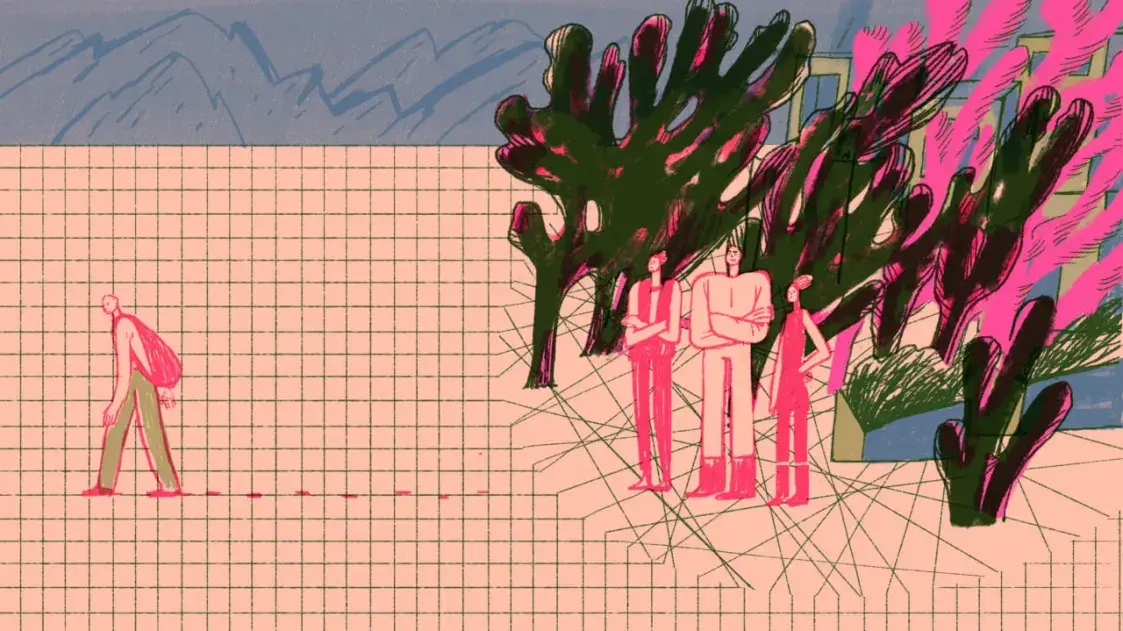
In school we analyzed what the state calls crimes. If you look at the criminal code of any country, you will see that two-thirds of them are economic crimes. And another large part of the articles of the criminal codes are aimed at protecting the state itself.
Yes, of course, some of the articles are aimed at protecting citizens from violence, from sexual violence - but if you look at the statistics, it turns out that these crimes make up about 10% of the total number of acts that are punished.
Statistics of the Ministry of Internal Affairs:
In Belarus, the number of serious violent crimes is about 5% of all crimes committed.
That is, most crimes are a consequence of inequality, which is manifested in the fact that people want to steal from each other, get a certain status, go over each other's heads. In our understanding, it is not only the state that contributes to this, but also capitalism.
And then we ask another question: how can we change our relationships so that people do not want to steal from each other, so that people do not want to improve their position at the expense of others? Our answer is that relationships must include more collectivity and interdependence.
Lera is sure that a society in which the system of relations is organized in such a way that it does not need a prison is not a utopia. Lera is also sure that she will not live to see the time when society is completely transformed. Because she knows that the theory of anarchism is difficult to put into practice.
A few years ago, D., a member of the antifascist movement, a Belarusian, moved to Warsaw and settled in the anarchist squat "Sirena" - but he did not find common ground with the other squatters. The squat "Sirena" was a political place, not just a "free space" - but D. had little interest in this part of his life and did not try to look deeply into the political issues of living together. When the conflict with the squat collective became more serious, D. had a knife in his hand.
"The squat collective made many mediation attempts to get in touch with D," Lera recalls. "They tried to negotiate, they tried to explain that it's not okay to threaten your neighbors with a knife. It's not okay for people to be afraid to run into you in the hallways. But D. refused to make contact and wouldn't participate in mediation. The man was simply parasitizing the squat's housing project".
An anarchist collective has rules. And the rules determine, among other things, how you get in - and out - of the collective.
When the knife appeared in D's hands, the squat collective did not contact the police. As a last resort, the anarchists decided to exclude the Belarusian from the project. And the collective decided: the community members no longer felt safe in D.'s presence and wanted to evict him.
The Belarusian was given a month to find a new place to live. They were willing to help him find an apartment and money, but he could not stay in the squat. D. was also offered to participate in the recovery process after the eviction, and if it was successful, he would be allowed to return to the collective.
"The attempted eviction was therefore not a punishment, but a need to ensure the safety of the other participants," Lera explains.
When anarchists say they want to destroy the prison, they mean they want to build a society that doesn't need a prison.
"After all, what is a prison? The result of social relations," Lera tells us. "More specifically, it is the end of the social contract when people are excluded from social relations. We don't want to work only with this end result. We want to work with relations.
Anarchists believe that if as many people as possible are involved in the decision-making process that directly affects their lives, if people are more involved with each other at the grassroots level, they will begin to respect each other more. If they meet in meetings, if they participate in each other's lives, they will stop stealing each other's bicycles and grabbing a knife in a conflict situation.
"We are not just spreading anarchist practices to break the prison. We are promoting practices of collective action at the grassroots level, practices of solidarity, equality, pluralism. And this, we believe, will be a way to solve other problems that society has".
And prison just won't be necessary
How did D.'s story end? He gathered a few dozen supporters in a squat in the neighborhood - and went to the siren. Now he and his supporters didn't just have a knife - they had bottles, rocks and firecrackers. Part of the collective was forced to flee. They have not returned to the Siren squat since, and the squat itself ceased to exist as a political platform.
"Yes, it was a challenge for us. There are theories for resolving this kind of conflict, but they require the other party to be willing to come forward and participate in the processes. That means coming to meetings, saying what's on their mind, and listening to what the team is thinking.
We're not trying to single out one perpetrator. We realize that if D. felt so excluded from the political life of the project, it is also the problem of the collective. This means that unless the environment within the collective changes, kicking D out will do little to fix it - there will be other D's who will do wild things. This is a lesson for us in how to get out of conflict. And yes, we recognize that the movement is facing a challenge. That this is a question for us: why are we accepting people into our collective whose views don't correlate with ours?
D. lived in the Siren squat for a while. The main part of the squat collective left the place.
At that moment thousands of Belarusian emigrants, who also could not cope with the "man with the knife" and left Belarus, sighed somewhere. No, of course we are not comparing the seizure of the squat with the seizure of the country, but we see certain similarities in the pattern of behavior. But what's next? An entire nation can hardly afford to simply "squat" a new piece of land.
(Not that they haven't tried - the New Belarus site even floated the idea of buying a piece of land from the Poles and rebuilding the country there, but it turned out that this was a bit against international law).
"The final stage of the transition period, of transitional justice, when victims regain their rights, is the reconciliation of society," says Andrei Yahorau. "This is the most important thing that has to be achieved in order for society to exist in a sustainable way. And reconciliation, which makes it possible to live together in one society, is a task for all Belarusians. We can't just isolate some people and build separate prison towns for them - we have to live in one country".
"You can just be blocked": social rating as an alternative to prison?
If the institution of reputation is "digitized" and the keys to it are given to the state, we will have a social rating system. If you have a low social rating, you won't be able to get a job, you won't be able to buy a house in a normal neighborhood, you won't even be able to leave the city. Does such a system require a physical prison?
Belarusian Elizaveta, who lives in China, tells us that the local social rating system more or less protects law-abiding citizens from administrative violations. But can it completely replace prisons? How does the system work?
"They think of the social rating system as a single system. And that's an oversimplification. You think of a person as having a personal file and a rating. It's nothing like that. I interviewed 10 Chinese people, including journalists. They have no idea what their personal rating is. Because the concept is complex," Elizaveta explains.
The main component of "social rating" is the criminal record. Illegal activities, traffic violations, failure to pay debts. If you are convicted of something, it will definitely affect not only your future life, but also the lives of your children.
"For example, an acquaintance of mine had his license suspended for drunk driving. For a repeat offense, you can lose your license for life and you can't rent a car. In the future, his daughter will not be able to get a job in the People's Liberation Army of China or hold leading positions in the civil service. If the parents' violations are more serious, the child may not be admitted to prestigious educational institutions.
Debts also affect your rating. Failure to pay someone for work, failure to pay child support, failure to help elderly parents, failure to repay a loan, using insurance beyond the limit and failure to pay will all be taken into account.
"If the court orders you to pay and you don't, you will be blocked. You can't buy plane or train tickets, you can't book a hotel, you can't rent property, you can't get a loan. It's really very effective. Just recently the company I work for won a lawsuit against another company. They had to pay a debt, but they didn't pay it on time. The head of that company was immediately blacklisted. He couldn't leave his city. So he was forced to pay back very quickly.
So China has several social ratings. The banks have their own database, and the app has a separate database that records whether you have paid for goods. The legal basis is also separate.
"If you are caught cheating, you will definitely have problems finding a job and getting state subsidies in the future. But even in Belarus, you can be fired for cause, and you will still have problems finding a job. The difference is that in China everything is automated. You can't buy anything or go anywhere without an ID. All issues are handled through apps. So it's very easy to get blocked. You violate something, you're blacklisted. They can just cut you off. But you have to really flagrantly break the rules (and often repeatedly) to get there.
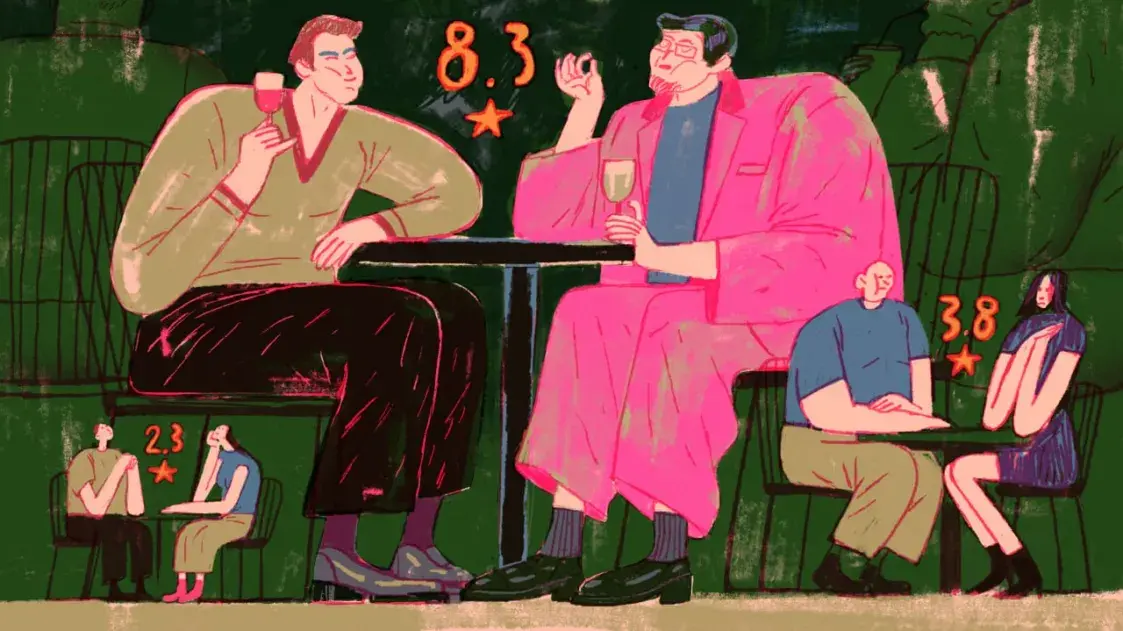
And they can also block your social feeds if they think you're spreading false information or rumors. The WeChat app is a Chinese person's life. It stores all your contacts (including work contacts), it is both a social network and an electronic wallet, even the QR code for paying your fare is stored in this application.
"But I don't think this system reduces crime and deters criminals. There are other punishments for criminals - imprisonment and even the death penalty. It's a different level. And if a person isn't afraid of prison, is any kind of rating going to deter them?"
If you don't pay child support, you can't go anywhere. If you damage a rental car and don't pay, you can't rent it again. Go over your health insurance limit - and you will not be able to buy insurance for the next year.
But I'm sure that no social rating will be an alternative to prison. Although it may deter certain crimes.
Food court and football in the prison yard
Food court and football in the prison yard
As we were finalizing this text, our colleague sent us a video from Vilnius:
"I'm about to watch a football match in the yard of Lukiškės prison. Want to see it?
She showed us.
Opponents of Czarist Russia, the Soviet Union, the Polish Republic, and the German occupation authorities passed through Lukiškės Prison. Now you can come here for a tour, walk around the cells, or sit down at the canteen in the prison yard.
In June, tents with beer taps were set up around the yard, and European soccer championship games were broadcast on big screens. In the next video, our colleague told me that she had a good time - a hundred years ago, hardly anyone could say the same about this prison.
In the year 2020, Belarusians imagined that one day the "American" prison would disappear. And one of the KGB towers could become a museum of protest posters. But will we not be able to build a new prison just like that, having transformed the "Amerikanka" prison into a museum?
Lera Khotsina doesn't think that Belarusians will be able to do that at this stage - most likely, we will reproduce the only kind of relations in society that we have seen and that we understand. Just as the protest, which started from the grassroots, has built structures in the form of "offices and cubicles" - simply because we have not seen any other structures.
"The emergence of power structures can be explained by the way big politics works all over the world, not only by the processes within Belarusian society. To get the support of another state, to be considered by another power, you have to try to reach the same level. You have to become the same system, and only then will you gain authority in the eyes of the government, only then will you be considered a subject, according to the logic of states.
The president of a European country will not meet with me, the grassroots activist Lera Khotsina. The president will meet with people of his level, with people who will promote the same system in the Belarus of the future. A system that he understands. That is, the state will talk only with another state.
What will happen with the prison in the new Belarus? We think that at this stage of development of our mentality the Belarusians will not decide what the prisons will look like. There are a lot of people who defected from the old structures - from GUBOPIK, from the police, from the Ministry of Foreign Affairs - and now they are reproducing the same structures they know here. And they say: let's do the same thing, but in a new way.
At the same time, grassroots activists are not involved in this process. We haven't seen a single open discussion where representatives of different communities could develop a future legal framework for Belarus. Can we influence it? Hardly. We can only influence it with new protests in the new Belarus.
So I think the prison will remain because the Belarusians have not completely rethought the problem of the prison institution. They haven't rethought the prison in such a way that they realize that it is evil. So far, they have only realized that their friends, the demonstrators, are being punished illegally. This is progress, but it is not enough to change attitudes in society.
But the fact that Belarusians in 2020 have demonstrated the ability to organize themselves and respect each other, as well as the words of former political prisoners about humanity and justice for all categories of prisoners, give hope that one day Belarusian society will change so much that it will no longer need prisons. But it is necessary to act in this direction already now.
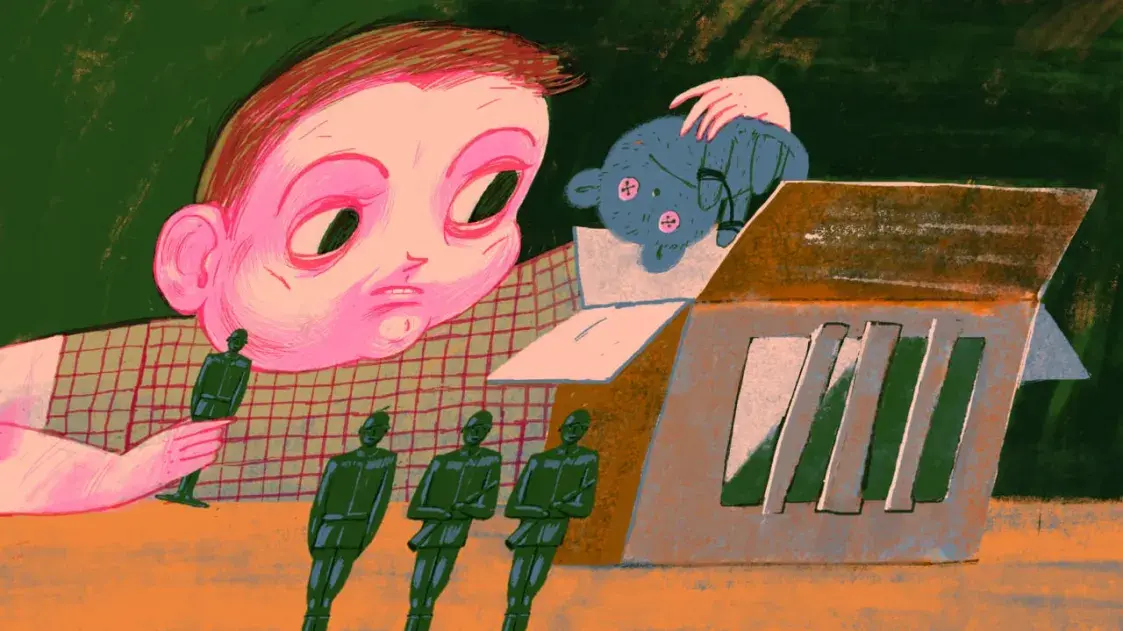
Is it possible to abandon not only the penal system but also the courts? Perhaps the Christian commandment "Thou shalt not judge" is not only a moral commandment, but also a social program? We asked Aliaksandr Kukhta, a Belarusian priest, author of the YouTube channel "Priest will answer", about this.
"Traditional Christianity organizes the commandments according to the hierarchy. The first and main commandment of Christianity is the commandment of love. To oneself, to others, and to God. All the rest are "crutches" that we use when we forget what it means to love our neighbor. And the commandment "Thou shalt not judge" is also a "crutch" that we can and should use when we cannot love a person for some reason.
Of course, all Christians would like to live in a world where everyone loves each other, where everyone is beautiful. In such a world, there are no laws because there is no need to make them, and there are no crimes. But unfortunately, our society is chronically sick and incapable of living in such a world. We're all a little imperfect, and we need crutches. And where crutches are needed, we also need institutions and tools to enforce the rules of our society.
Talk about love and empathy. Several years of imprisonment can be reduced to a few minutes by allowing the criminal to feel the emotions of his victim. In the prisons of the future, prisoners will be implanted with memories generated by artificial intelligence. The intensity and type of memories will be adjusted according to the severity of the crime.
This is the fantasy of Yemeni blogger Hashem Al-Gaili. Positioning himself as a filmmaker and popularizer of science, he creates short videos using artificial intelligence technology. His social media accounts have more than 35 million followers. He recently posted a video about a future prison where years of imprisonment can be replaced with "forced empathy.
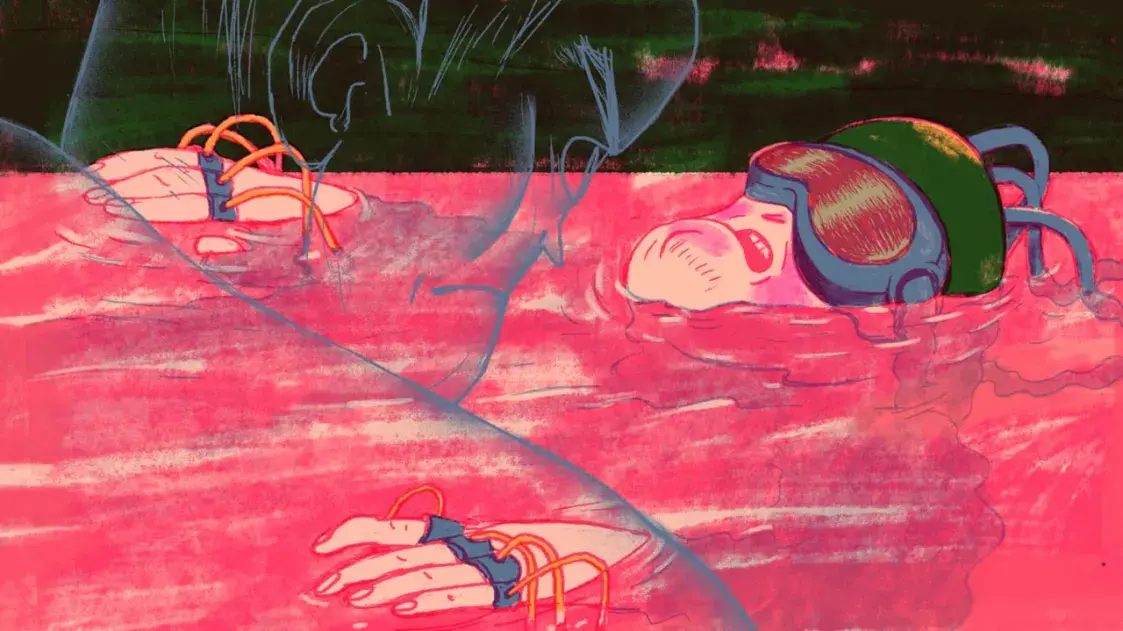
Indeed, it looks like a new kind of torture, not a new prison. Besides, you'd have to be a pessimist to think that the chipping will start before the new Belarus is built. So other options are needed.
Fine, then.
Try again to imagine a world without prisons.
And we'll try, too.
Produced with the support of Mediaset
